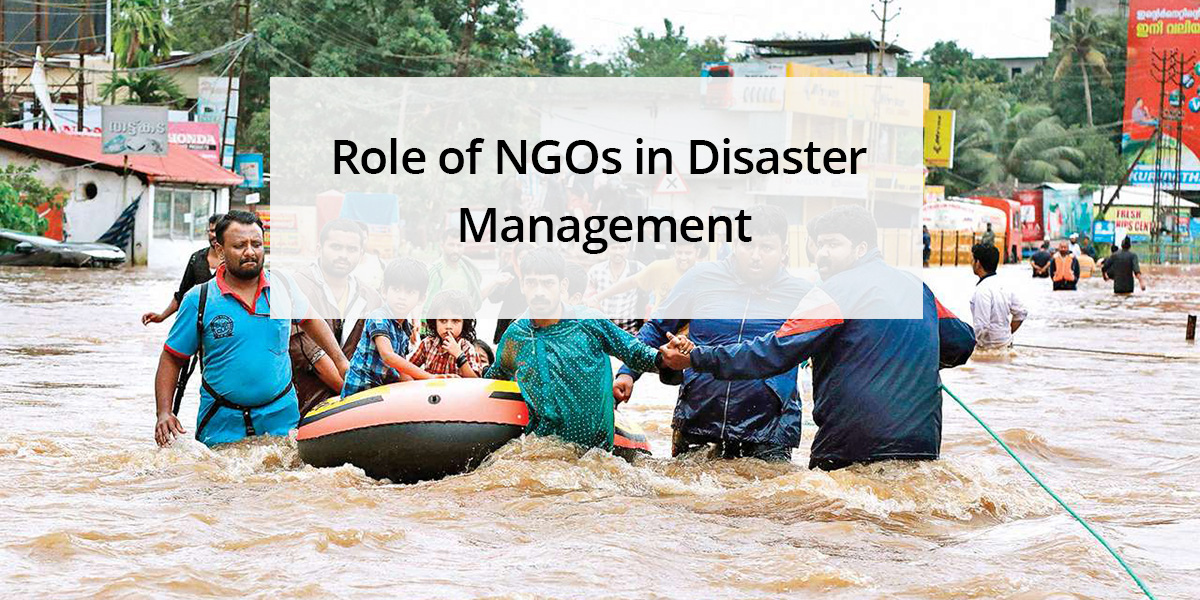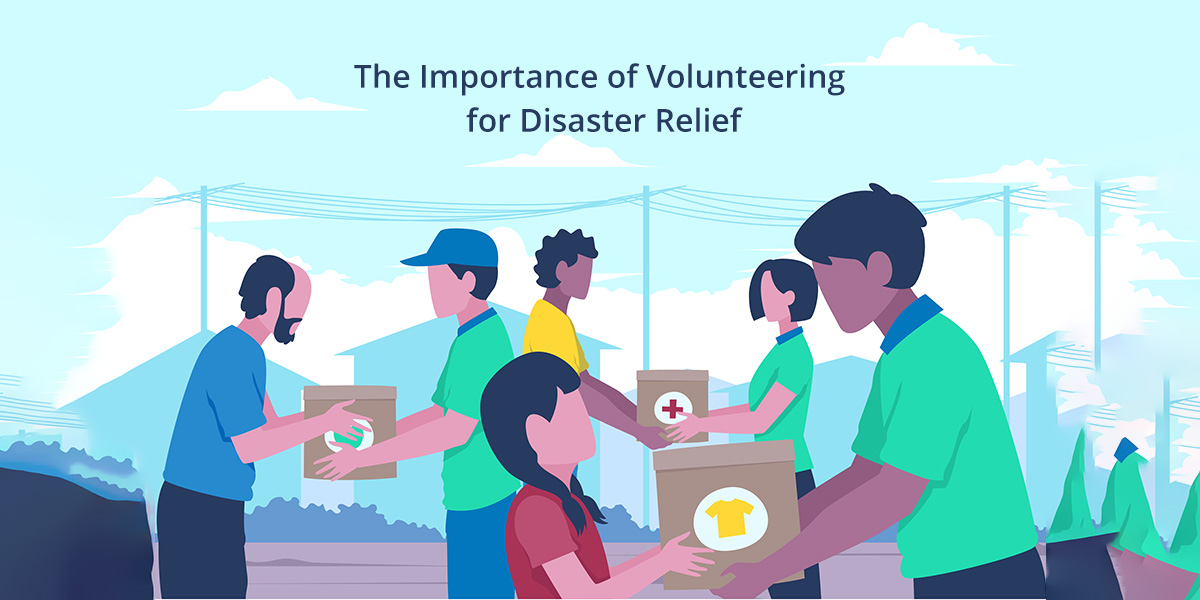Disaster management and its fully functioning infrastructure is an indispensable asset within any modern society and country looking to protect the lives and integrity of the general populous and the surrounding flora and fauna. Apart from the need for such a unit, there should be the willingness of the people to help their fellow citizens in their time of pain and suffering. Most NGOs are normal citizens concerned about the welfare of the people and the ecosystem around them.
NGOs have become a huge part of the Indian development infrastructure as the country suffers from problems like poverty, unemployment, lack of education, natural and man-made disasters, etc. The need for such NGOs arises from the massive disparity between urban and rural lifestyles, cultures and the general development within the regions.
What is Disaster Management?
Disaster Management is the process of organizing and allocating resources and responsibilities during or before a disaster strikes. The management process looks into various humanitarian and environmental aspects so as to protect the well-being of the populous and the surrounding flora and fauna.
Disaster management is an important and indispensable part of any modern economy. Especially when it comes to a multicultural and diverse country like India that not only hosts a variety of cultures and religions but also is home to diverse terrain and a multitude of ecosystems.
To better understand the need for disaster management, mentioned below are a few good reasons:
- The entire disaster management process is critical in increasing community resilience.
- Saving both the human population and the surrounding environment.
- Promoting disease prevention with mitigating measures already in place through proper legislation.
- Disaster management strategies include increasing the level of security along with due diligence in order to ensure premature mitigation of disasters that might occur in the future.
- The preservation of natural resources is a critical reason for having a disaster management system in place.
Role of NGOs in Disaster Management
Before understanding the role of NGOs in disaster management, it is important to credit the people within society who honor the plight of others and volunteer to help them through their suffering. Volunteering is a big part of an NGO or NPOs operations.
These organizations are usually set up under legislation such as the Society’s Registration Act, 1860, Public Charitable Trust Acts, Section 25(1) of the Companies Act, 1956. Usually, NGOs working with disaster management usually cater to other purposes as well such as dealing with the underprivileged, education, healthcare, elderly assistance, nutrition, environment protection, sanitation, food security, shelter, infrastructure, livelihoods, etc. India being such a volatile space that is extremely prone to man-made or natural disasters, these NGOs provides much assistance on humanitarian grounds as they council the wounded and victims of the disaster.
A Disaster management system usually operates on the basis of fulfilling 4 main criteria, namely:
- Preparedness
- Mitigation
- Response
- Recovery
NGOs and NPOs in India have upped their operations and moved a level ahead from only providing post-disaster relief to working on pre-disaster awareness creation, preparedness and mitigation through campaigns, conferences, capacity building, mock drills and workshops. Apart from donations, NGOs have tried to set up other sources of income for their organizations in the form of partnerships with private enterprises. These partnerships are in the form of Public-Private Partnerships (PPP) or Corporate Social Responsibility (CSR) on all state, sub-state, and district levels.
The current scenario on disaster management requires a very sporadic and responsive approach from the NGOs thus allowing these organizations to focus on other areas like healthcare and education for the marginalized and underprivileged
In a nutshell, the need for disaster management is quintessential to any economy. As NGOs up their game in dealing with mitigation and awareness creation about various disasters, their ability to respond to an incoming disaster becomes strong as they are able to provide relief to more people under the infrastructure created by our country. The article comprehensively describes the meaning of disaster management and the role of NGOs in disaster management. The private partnerships created by the NGOs through CSR and PPPs have helped to a great extent in terms of capacity building and research about various disasters and management techniques to protect the interest of the people.
This article basically wants to shed light on the role of NGOs in India with regard to disaster management. The article clearly defines the need for disaster management and how it needs to be handled to minimize the damage and provide a quick response to any incoming or existing dangers. Understanding the role of NGOs can help a great deal in refining the operations of the entire system. This article has clearly described the current scenario in India regarding the role of NGOs in disaster management. For more information, you can log onto our website.







Post a Comment
You must be logged in to post a comment.